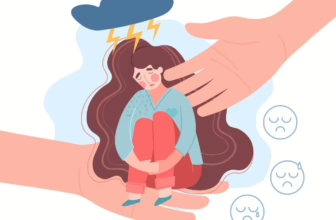College is often seen as a time of newfound freedom and experimentation for young adults. Removed from the constant supervision of parents and high school authorities, many college students find themselves abusing drugs and alcohol at alarming rates. Studies show that substance abuse peaks during the ages of 18 to 22, precisely the college years for most students. What factors drive otherwise intelligent and ambitious young people down this dangerous path?
Stress During the College Years
Stress is one of the biggest culprits. College places tremendous academic, financial, and social strains on students as they transition into adulthood. Rigorous course loads, looming debts, career uncertainties after graduation, and relationship issues can all weigh heavily on students. Many turn to alcohol and drugs as a form of self-medication to numb difficult emotions or simply escape from their mounting pressures temporarily, and a student might quickly find they are abusing valium and prescription drugs.
Party Culture
The pervasive party culture found on many campuses also promotes substance abuse. Binge drinking is often seen as a rite of passage, and many students feel peer pressure to drink heavily or use recreational drugs to fit in socially. For freshmen especially, the need to make friends and establish oneself in this new environment can encourage excessive experimentation if substances are actively available at parties or gatherings.
Mental Health Issues
The college years represent a vulnerable time for mental health conditions and addiction. Many students live independently for the first time and lose familiar support systems. The academic pressures of rigorous course loads and competition trigger overwhelming stress. Social scenes centered around alcohol and drugs normalize binge behaviors. Without proper coping skills, students may turn to substances as escape mechanisms, sinking into addiction.
Alternatively, underlying psychiatric issues like depression and anxiety can surface during this developmental stage marked by identity exploration. Unfortunately, the stigma around seeking mental health treatment persists on campuses. Students battling disorders in isolation are at heightened risk for self-medication and suicidal crises. University communities must prioritize awareness of psychiatric and addiction resources to protect their students.
Continuation of Earlier Behavior
For some students, earlier habits from high school carry over when they enter the college scene. Those who already drank or used drugs to cope with personal issues will likely continue exhibiting addiction tendencies in an environment where monitoring and accountability are much lower. Substance abuse from an early age is strongly correlated with dependence later on.
Ease of Availability
Finally, the general availability of alcohol, marijuana, and other recreational substances on college campuses makes indulging temptation all too easy for students. While abstinence is preached officially, the reality is much different once students are living independently. Enough legal-aged students purchase substances legally or illegally, enabling underage use, abuse, and addiction.
College students face a perfect storm of factors driving them towards substance abuse, especially during their vulnerable transition into adulthood. Stress, social pressures, mental health issues, earlier addictive patterns, and widespread availability all feed into creating environments rife with alcohol and drug misuse. Colleges must recognize these drivers and institute more preventative education, counseling, sober social options, and addiction recovery programs.
Students must watch out for warning signs in themselves and their struggling peers. Catching problems early before dependence sets in can change the trajectory of not just students’ academic careers, but the rest of their lives. With awareness, care, and properly utilized campus resources, the alarming trend of substance abuse can be reversed.
Follow me down the rabbit hole!
I'm Alice and I live with a dizzying assortment of invisible disabilities, including ADHD and fibromyalgia. I write to raise awareness and end the stigma surrounding mental and chronic illnesses of all kinds.








